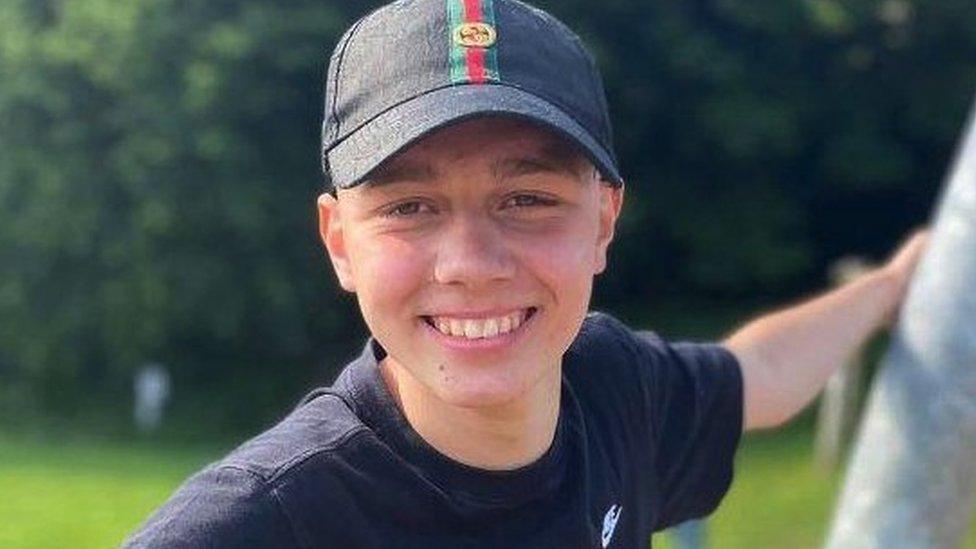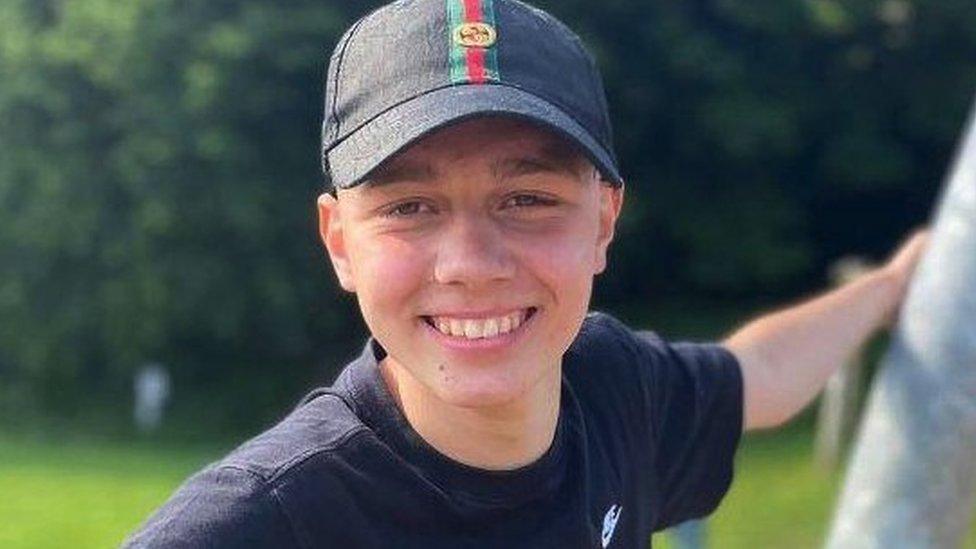Lancaster boy's transplant decision is complex, judge hears
- Published

William is at the centre of a treatment dispute with Royal Manchester Children's Hospital
A dispute over whether a transplant is in the best interests of a 17-year-old boy who has kidney disease is "extremely complex", a court has heard.
Ami McLennan, from Lancaster, said a transplant represented her son William's only chance and, without it, he would have just 12 months to live.
Royal Manchester Children's Hospital said it was not in his best interests.
A judge is hearing evidence at the Court of Protection, sitting in Liverpool, to decide on his care.
Ms McLennan, 45, said a transplant for her son, who is on dialysis and suffers from steroid-resistant nephrotic syndrome, was a "feasible option" and has made an appeal for a donor.
Several people have come forward following her appeal, her lawyers have said.
However, specialists treating William, who has autism, at Royal Manchester Children's Hospital do not agree.
Lawyers representing the hospital's governing trust - the Manchester University NHS Foundation Trust - have asked Mrs Justice Arbuthnot to consider the case and make decisions.
'Highly questionable'
Opening the four-day hearing, Helen Mulholland, for the trust, said: "It is an extremely complex and difficult case with no clear or obvious resolution.
"All the parties acknowledge that the decision to be made by this court is an extremely balanced one - and one which comes with significant risk to William either way."
Ms Mulholland said William's moderate to severe learning difficulties, also including ADHD (attention deficit hyperactivity disorder), and the "interplay between the physical and mental health needs" presented a "very complex" picture.
The judge has heard the trust opposes a transplant because essentially William would require sedation and ventilation for possibly up to six weeks to ensure he complies with the interventions post-operatively.
The court also heard the prospect of recurrence of the steroid-resistant nephrotic syndrome was high, at about 80%.
His mother opposes the trust's application and relies on expert evidence which points more towards a 50% chance of recurrence and that a transplant gives him a reasonable potential for a good long-term outcome.
The trust argues it is "highly questionable" whether such a prospect of a successful transplant is enough for the court to determine that it is in William's best interests.
It adds it is likely he would suffer potentially serious physical and psychological injury through such a process.
The hearing continues.

Why not follow BBC North West on Facebook, external, Twitter, external and Instagram, external? You can also send story ideas to northwest.newsonline@bbc.co.uk
Related topics
- Published14 February 2022

- Published9 February 2022
